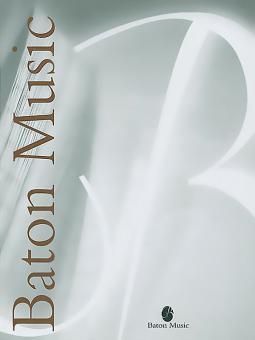Pictures at an Exhibition
Baba Yaga & The Great Gate of Kiev (SCORE)

Pictures at an Exhibition
Baba Yaga & The Great Gate of Kiev (SCORE)
- Adaptador Bruno Peterschmitt
- Editorial Baton Music
- Nº de pedido BTM1187SC
IVA incluido.,
Más gastos de envío
No disponible en todos los países. Leer más
Descripción de la:
Modest Mussorgsky (1839-1881) composed the 'Pictures at an Exhibition' in 1874 as a suite of ten piano pieces. The suite is generally acknowledged to be Mussorgsky's greatest solo piano composition, and has become a showpiece for virtuoso pianists. It has also become known through various orchestrations and arrangements produced by other musicians and, with Ravel's arrangement being the most recorded and performed.
French arranger Bruno Peterschmitt transcribed the two final movements of the 'Pictures at an Exhibition' for Brass Ensemble: 'Baba Yaga' and 'The Great Gate of Kiev'.
'Baba Yaga' is a scherzo feroce with a slow middle section. The central andante is one of the more demanding portions of the suite, featuring a 16th note triplet tremolo throughout. The coda leads without a break to the next and final movement, 'The Great Gate of Kiev'. The music of this section starts with big, long chords, describing the grandness of the gate. The Promenade theme is heard, perhaps depicting many people walking together through the gate. It also introduces a solemn secondary theme suggestive of Russian Orthodox chant. The end of the movement is victorious.
French arranger Bruno Peterschmitt transcribed the two final movements of the 'Pictures at an Exhibition' for Brass Ensemble: 'Baba Yaga' and 'The Great Gate of Kiev'.
'Baba Yaga' is a scherzo feroce with a slow middle section. The central andante is one of the more demanding portions of the suite, featuring a 16th note triplet tremolo throughout. The coda leads without a break to the next and final movement, 'The Great Gate of Kiev'. The music of this section starts with big, long chords, describing the grandness of the gate. The Promenade theme is heard, perhaps depicting many people walking together through the gate. It also introduces a solemn secondary theme suggestive of Russian Orthodox chant. The end of the movement is victorious.
